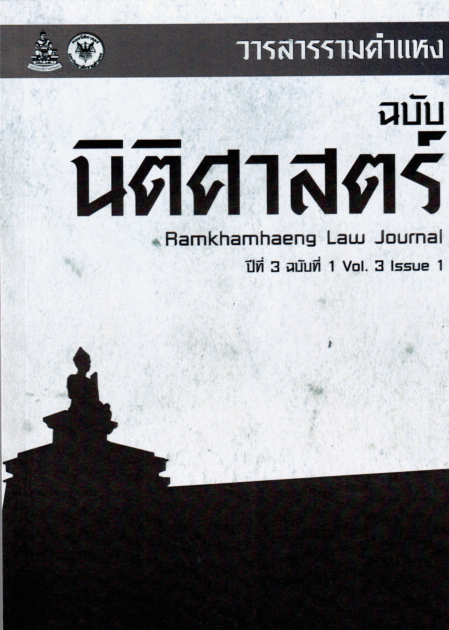ปัญหาบางประการเกี่ยวกับการอุทธรณ์และการดำเนินคดีภาษีอากร
Main Article Content
Abstract
การอุทธรณ์และการดำเนินคดีภาษีอากรนั้น ถือเป็นขั้นตอนสุดท้ายในกระบวนการจัดเก็บภาษีอากรที่สืบเนื่องมาจากการบังคับจัดเก็บซึ่งประเทศไทยอาศัยอำนาจตามกฎหมายหลายฉบับที่สำคัญ ได้แก่ประมวลรัษฎากรพระราชบัญญัติศุลกากร พ.ศ. 2469 พระราชบัญญัติภาษีสรรพสามิต พ.ศ. 2527 พระราชบัญญัติภาษีโรงเรือนและที่ดิน พ.ศ. 2475 พระราชบัญญัติภาษีบำรุงท้องที่ พ.ศ. 2508 และพระราชบัญญัติภาษีป้าย พ.ศ. 2510 ซึ่งพบว่าการอุทธรณ์ข้อพิพาททางภาษีในกฎหมายแต่ละฉบับ มีความแตกต่างกันอย่างมากในเรื่องที่เป็นสาระสำคัญ ไม่มีความชัดเจนเพียงพอ และขาดรายละเอียดที่ สำคัญในการคุ้มครองสิทธิของผู้เสียภาษี ส่วนการดำเนินคดีภาษีอากรในศาลภาษีอากร ยังมีปัญหาเรื่องเงื่อนไขแห่งการฟ้องคดี ความเหมาะของผู้พิพากษาที่ทำหน้าที่พิจารณาคดี รวมทั้งกระบวนพิจารณาที่ใช้วิธีพิจารณาความแพ่งเป็นหลัก ดังนั้นประเทศไทยจึงควรแก้ไขปรับปรุงกฎหมายภาษีอากรทุกฉบับให้มีความสอดคล้องกัน และแก้ไขกฎหมายเกี่ยวกับการดำเนินคดีภาษีอากรให้เหมาะสมกับลักษณะของข้อพิพาท ทั้งนี้ด้วยการศึกษาเปรียบเทียบกับกฎหมายภาษีอากรของประเทศญี่ปุ่น ประเทศสหรัฐอเมริกา และประเทศออสเตรเลีย
SELECTED TAX APPEAL AND TAX LITIGATION PROBLEMS
Tax appeal and tax litigation is considered as the last step in the process of collecting the tax. Toward force and collect the tax of the Kingdom of Thailand authority of several law. Include major law are the Revenue Code, the Customs Act, B. E. 2469 (1926), Excise Tariff Act, B. E. 2527 (1984), the Act on Land and House Tax, B. E. 2475 (1932), the Land Development Act, B. E. 2508 (1965), and Signboard Tax Act, B. E. 2510 (1967) which found that the appeal of tax disputes each law differ greatly in regard to the subject matter. No obvious and lack of important details to protect the rights of taxpayers. Tax litigation in the tax court. Also have problems with the terms of the prosecution. The ideal of a judge who acts trial. Including the proceedings of Civil Procedure shall prevail. Therefore, Thailand should update all the tax laws to be consistent. And amend the law relating to the taxation proceedings to suit the nature of the dispute. However, the study compare with taxation law of Japan, the USA and Australia.

